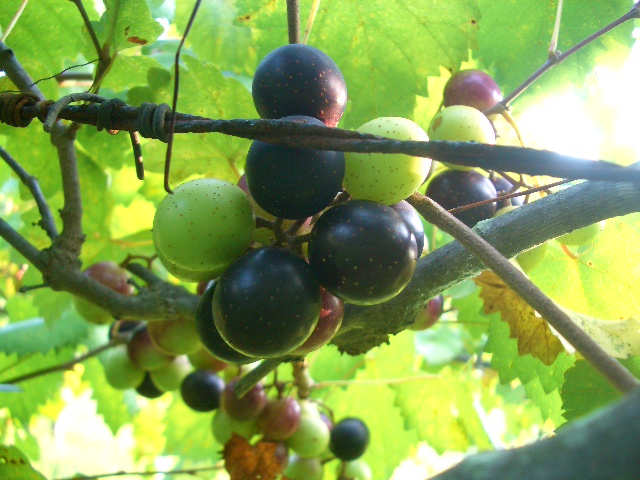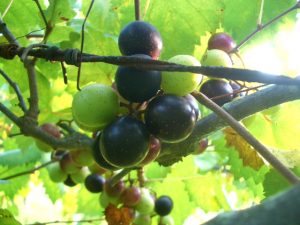A Georgia specialty crop has seen increased interest and more research for varieties and management strategies. Cain Hickey, Extension viticulture specialist at the University of Georgia (UGA), said that some aspects of muscadine grapes are sparking grower interest.
Since the muscadine grape has grown and evolved in the humid conditions of the southeastern United States, Hickey said the disease and general pest management program is less intensive compared to bunch grapes.
According to Hickey, there are health benefits associated with the compounds found in muscadine grapes. He believes this is one reason that consumers are becoming interested in muscadine grapes and their products. Hickey said he tried his first muscadine grape this year and enjoyed it. If consumer interest turns into greater demand, then production may increase.
Certain wineries are putting a spin on traditional muscadine wine. While muscadine wine is typically assumed to be a sweet wine, Hickey said some wine makers are giving it more of a dry style, an aspect to which many people have responded positively.
Hickey said he will be planting a muscadine vineyard in Athens, Georgia, in spring 2018. This planting will aid in the adoption of better management strategies to produce newly introduced fresh market varieties, but also those traditionally used for processing. Processed muscadine grapes are typically used for creating juice or wine.
Research being done by a breeder at UGA is also helping the fresh market by searching for characteristics that are more desirable for consumers, Hickey said. It is an effort of both researchers and breeders to work together to create the best cultivars and management strategies for growers.
Patrick Conner, professor in the horticulture department at UGA, said that breeders such as himself are taking a new approach to find a way to expand the muscadine grape market, which he said has been fairly steady.
In their current form, muscadine grapes are soft when ripe, which makes some grocery stores and consumers reject them for being too soft when compared to standard table grapes, Conner said. This is why he is working to create a breed of muscadine grapes that has a more firm texture, so it will more closely resemble a table grape in texture when ripe. He said this breed would allow the firmness that most consumers are used to as well as the taste that comes with a muscadine grape.
Conner said the primary market for muscadine grapes in the United States right now is the Southeast. With this change, he is hoping that market will open up for other places, such as the Midwest and Northeast.
Share this Post











